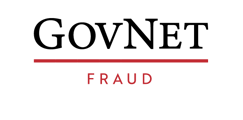Over the last year we've asked counter fraud professionals from across the public sector what words of wisdom they would pass on to the next generation of fraud investigators and apprentices.
Here's their advice for better fraud and loss prevention strategies:
John Kielty, Chief Intelligence Officer, Serious Fraud Office
"I’d build on the SFO’s strap line: 'We won't stop fighting serious fraud'. The way I see it, it’s about tenacity and it's also about being proactive.
I think fraud Investigators tend to be very tenacious by nature, but you also need be proactive in the sense of looking ahead, looking at what's changing in the world of fraud, and thinking, 'what do I need to keep pushing this case on'. Constantly be on the front foot.
Adrian Searle, Director, National Crime Agency
"There are a few. The first I would use stolen from the Director General of the National Crime Agency - in our five-year strategy he speaks about “upstream, overseas and online” as a set of focus areas. I would argue that's where we need to be going in the industry as a whole.
We need to be moving up the food chain of the criminals, getting to the those who are running the fraud scams and the organised crime groups behind them. One statistic suggests that 75% of all frauds have an overseas component; and we know that a lot of fraud is taking place online or being digitally enabled.
So “upstream, overseas and online” is a really important phraseology for me."
Alex Rothwell, CEO, NHS Counter Fraud Authority
"There's a concept in policing called the Peelian Principles, established by the founder of the Metropolitan Police Service, Sir Robert Peele. He said, “The test of police efficiency is the absence of crime and disorder, and not the visible evidence of police action in dealing with them”. This makes a lot of sense in a policing context, but when you apply it to fraud it makes less sense because fraud is a hidden crime.
I think the test of efficiency for fraud is actually the visibility of fraud professionals getting out there and dealing with it - a sort of anti-Peelian principle.
Also, something a colleague said recently that stuck with me is: “Absence of evidence is not evidence of absence” - it's easy to say, “We haven't got any fraud here” if you haven't actually looked."
Juliette Enser, Senior Director - Cartels, Competition and Markets Authority
"We've talked about it so much that people now laugh when I start saying the words: the ‘virtuous circle of enforcement’.
It's difficult to uncover cartel activity. It generally takes place in secret. Customers don't generally know they're being ripped off. So the CMA have a leniency program, under which companies that are engaged in cartel activity can come forward and self-report. In return they essentially get immunity from enforcement action, or at least immunity from fines.
What we've found is that the more we enforce, the greater the incentive for companies to come and self-report to us. So, the more cartels we can take action against, the greater those incentives are to come forward. And that in itself destabilizes the cartels - the fact that we have these leniency programs, the fact that we have these incentives to people come forward. Hence the ‘virtuous circle of enforcement’."
Dr Elisabeth Carter, Associate Professor of Criminology, Kingston University
"We need to be very careful about our use of language. When we speak about fraud, there's no such thing as somebody 'getting their money back'. Their money has gone, and it's gone to fund all sorts of awful things that we should tell the public about. Instead they are getting the equivalent back, which actually harms the public purse.
It sounds really pernickety, but changing the narrative around this would be really useful, and we are in an ideal place to be able to put this message across.
Equally, when we or the media talk about fraud, quite often the victim is highlighted but the fraudster isn’t really spoken about except for, 'oh, they've been really cunning'.
In the public sector there is a such thing as 'the ideal victim'. The problem is that the ideal victim is somebody who is cognitively or physically vulnerable - so a little old lady down the road that's made a mistake, for example.
This reporting is the heart of our idea of media and crime. However, it really hurts fraud fighting because it goes against the very bland reality that anyone can be a victim of fraud. You don't have to be vulnerable.
As a result, ‘vulnerable’ starts to be a dirty word, victims don't admit to it and fraudsters thrive on this silence and isolation, which is perpetuated by the way it's reported in the media.
Equally, if the victim is any kind of large organisaton, there's very little sympathy - it's as though they are to blame because they've got money, or they did something 'wrong' to be defrauded. There's a lot of blame. And that blame doesn't sit where it should, which is with the fraudsters not the victims."
For More Words of Wisdom...
We all know that fraud is a prevalent and hard to tackle crime throughout the public sector.
For more fraud and loss prevention tips, listen to the rest of the interviews, live on Fraud Focus - the monthly videocast hosted by Mark Cheeseman OBE of the Public Sector Counter Fraud Authority. Season 1 is free to watch here >> https://info.govnet.co.uk/fraud-focus-season-1
Jessica Kimbell, GovNet

